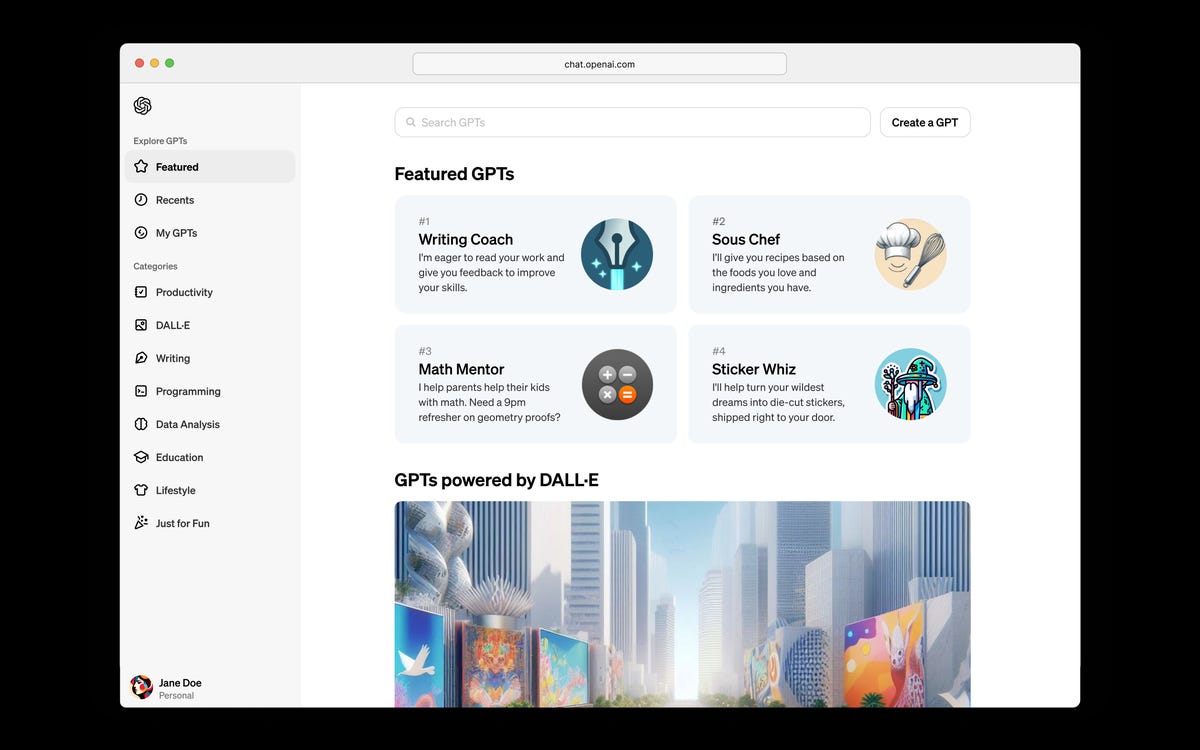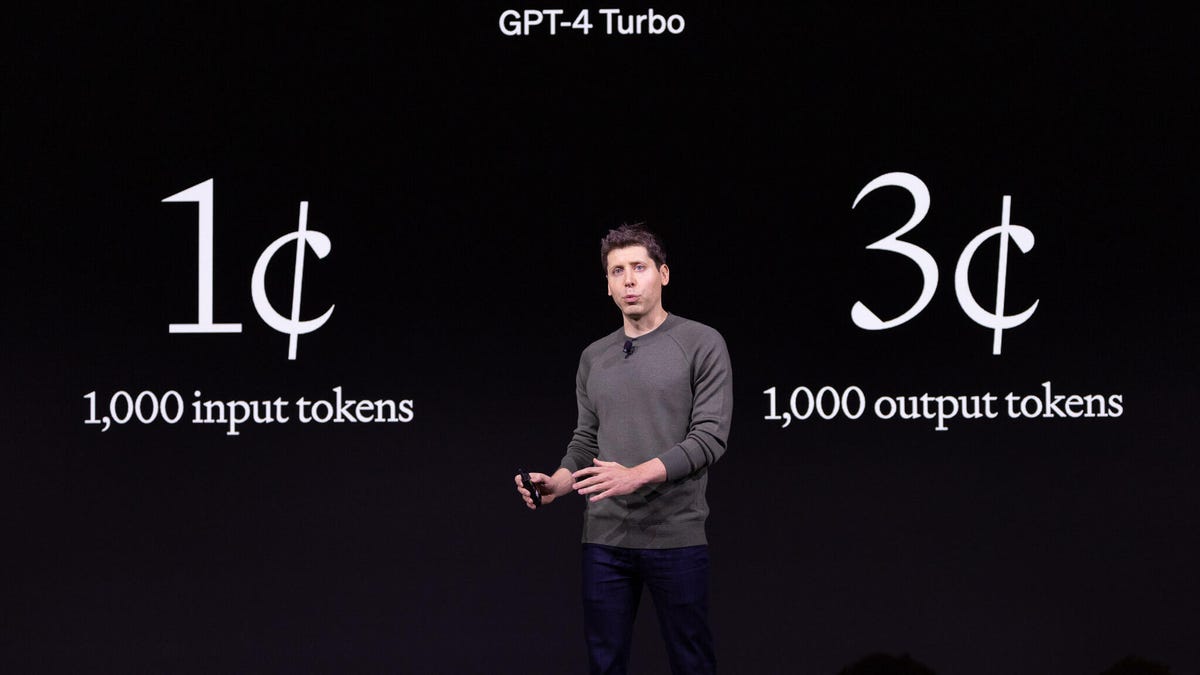ChatGPT, the viral conversational AI chatbot created by OpenAI, has reached over 100 million weekly active users just a year after it’s launch. This meteoric rise demonstrates the public’s growing fascination with artificial intelligence. In response to ChatGPT’s popularity, OpenAI has announced several major updates that will shape the future of AI assistants.
New Ways to Customize AI Tools
OpenAI revealed a new system that allows anyone to build customized AI tools called Generative Pre-Trained Transformers (GPTs). GPTs are specialized versions of ChatGPT that can be tailored for specific purposes.
 To create a ChatGPT, users provide plain-language instructions about its intended purpose, upload relevant training materials like videos or PDFs, and direct the bot’s capabilities. For example, one could make a GPT that gives startup advice by uploading entrepreneurship videos.
To create a ChatGPT, users provide plain-language instructions about its intended purpose, upload relevant training materials like videos or PDFs, and direct the bot’s capabilities. For example, one could make a GPT that gives startup advice by uploading entrepreneurship videos.
This democratization of AI will enable more personalized, niche assistants. OpenAI is launching a GPT app store in 2023 so people can easily find, share, and potentially pay for individual GPTs. The store could catalyze an app economy akin to what Apple did for smartphones.
Upgrading the Core AI Model with ChatGPT-4 Turbo
OpenAI also unveiled GPT-4 Turbo, a more powerful iteration of its core natural language model that powers ChatGPT. GPT-4 Turbo handles more complex prompts and has been optimized to lower computing costs.
 Crucially, GPT-4 Turbo is trained on data through April 2023 rather than 2021, allowing it to respond with up-to-date information. It can also accept image inputs to complete visual tasks like captioning photos.
Crucially, GPT-4 Turbo is trained on data through April 2023 rather than 2021, allowing it to respond with up-to-date information. It can also accept image inputs to complete visual tasks like captioning photos.
For end users, GPT-4 Turbo will soon be rolled out to enhance ChatGPT Plus. The upgrade makes the AI assistant more knowledgeable, versatile, and responsive.
Financial Incentives for Developers
OpenAI is giving developers new pricing, concessions, and capabilities to spur AI innovation. Using GPT-4 Turbo will be significantly cheaper at just $0.01 per 1,000 prompt tokens.
Developers will also gain access to new features like the ability to build AI assistants that can take actions automatically. For enterprise customers, OpenAI’s Copyright Shield coverage provides legal protection related to copyright claims.
Lower costs and liability coverage will make it easier for developers to experiment with generative AI. Ultimately, this benefits consumers by accelerating new AI products and services.
Concerns About the AI Revolution
Despite the excitement over upgrades like GPT-4 Turbo, some argue these ever-more-capable AI systems need ethical guardrails.
Critics emphasize that chatbots still make factual mistakes and could unfairly replace human employees. There are also unresolved legal issues regarding how AI models use copyrighted training data.
To alleviate concerns, companies like OpenAI portray chatbots as assistants rather than independent experts. All parties agree human oversight is still required, but finding the right balance of control is an ongoing challenge.
The Democratization Conundrum
Empowering the public to build specialized AI like GPTs further complicates things. Enabling everyone to make chatbots tailored to their own needs has an upside—but uncontrolled distribution of biased or misinformation AI would be dangerous.
OpenAI will likely vet GPTs submitted to its app store for quality, safety, and other factors. However, not all custom AI will go through centralized review. Wider access makes monitoring and accountability harder across the AI ecosystem.
Next Steps in the AI Journey
As AI capabilities grow, managing risks and ethical dilemmas will be crucial. But the momentum behind AI advancement seems unstoppable as companies like OpenAI, Google, and others pour resources into developing ever-more-capable models.
 AI has passed a tipping point from sci-fi fantasy to mainstream utility. Moving forward, the technology’s rising impact necessitates thoughtfully crafting policies, protections, and best practices across industries developing and using AI.
AI has passed a tipping point from sci-fi fantasy to mainstream utility. Moving forward, the technology’s rising impact necessitates thoughtfully crafting policies, protections, and best practices across industries developing and using AI.
If done right, this new era of AI augmentation via customizable assistants like GPTs could profoundly enhance human capabilities and quality of life. Realizing an ethical, responsible AI revolution hinges on proactive collaboration between companies, governments, and civil society.












Comments 2